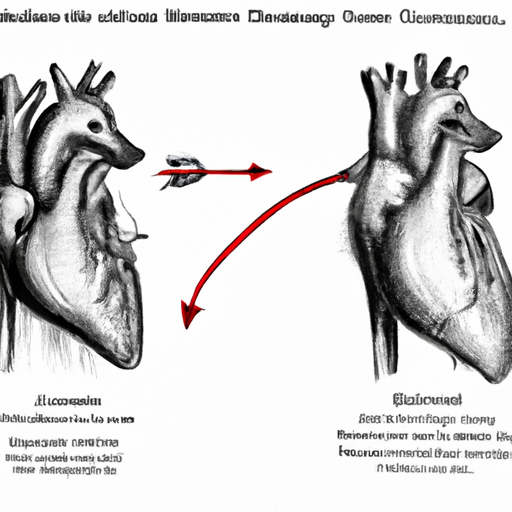Understanding the Canine Heart
The heart is a vital organ not just for us humans, but for our beloved canine companions too. It’s a powerful muscle, pumping blood around the body, supplying oxygen and nutrients where they’re needed. Just like in humans, a dog’s heart can become enlarged. When this happens, it’s called canine dilated cardiomyopathy (DCM).
The Causes Behind an Enlarged Heart
There are several reasons why your dog might develop an enlarged heart. Here are the five main causes:
- Breed: Some breeds are more susceptible to DCM than others, including Doberman Pinschers, Boxers, and Great Danes.
- Age: Older dogs are more likely to suffer from heart problems than younger ones.
- Diet: Certain diets have been linked to DCM, especially “grain-free” diets high in legumes.
- Infections: Infections that attack the heart muscle can lead to DCM.
- Unknown reasons: Sometimes, the cause of a dog’s enlarged heart remains a mystery.
Symptoms to Watch Out For
Your dog can’t tell you what’s wrong, but they can show you. Pay attention to these symptoms:
- Coughing or difficulty breathing
- Weakness or lethargy
- Loss of appetite or weight
- Rapid or irregular heartbeat
- Fainting or collapsing
How Vets Diagnose an Enlarged Heart
If you notice any of the symptoms above, your vet might suspect an enlarged heart. Here are some tests they might use to confirm their suspicion:
- Blood and urine tests: These can reveal signs of heart disease.
- X-rays: These can show an enlarged heart.
- Echocardiogram: This ultrasound of the heart can show its size and how well it’s working.
- Electrocardiogram (ECG): This can reveal any abnormalities in the heart’s rhythm.
Treatment Options Available
The right treatment for an enlarged heart depends on the underlying cause. Here are some common treatments:
- Medication: Your vet might prescribe drugs to help the heart pump better, reduce fluid build-up, or control the heart rate.
- Dietary changes: If your dog’s diet is linked to their heart condition, your vet might recommend a change.
- Exercise restriction: Dogs with heart conditions often need to rest more and exercise less.
- Surgery: In some cases, surgery might be the best option.
FAQ
Q: Can a dog live with an enlarged heart?
A: Yes, many dogs can live a happy life with proper treatment and management.
Q: Does an enlarged heart cause pain in dogs?
A: An enlarged heart itself isn’t painful, but it can lead to symptoms like breathlessness which can cause discomfort.
Q: Can diet cause an enlarged heart in dogs?
A: Some research suggests a link between certain diets and DCM, but more studies are needed.
Q: Can an enlarged heart be cured?
A: While there’s no cure for DCM, it can often be managed with medication, dietary changes, and lifestyle adjustments.
Stay vigilant, stay informed, and remember – your vet is your best ally in ensuring your dog’s heart health.



